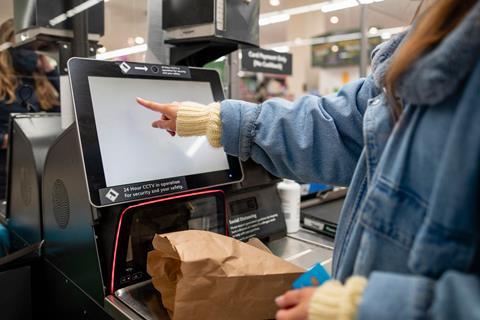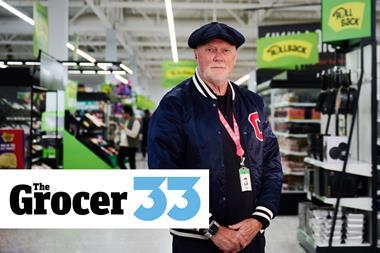
Customer service levels at the supermarkets fell to further record lows in the last year – with lengthening queues at checkouts the main driver of the continuing decline.
Average customer service scores fell by an average 1.2ppts to 13.9 out of 20 in the Grocer 33 annual mystery shopping survey, which reached its conclusion at the Grocer Gold Awards this week. The drop comes after average service scores fell by an unprecedented 10ppts the previous year.
Checkouts proved the biggest culprit – more significant to the decline than issues over availability, which also fell. While measures of the checkout experience such as staff friendliness, and their willingness to assist in packing and care in handling goods remained unchanged since last year, dissatisfaction over the amount of time waiting in queues at manned checkouts reported by our mystery shoppers soared. Whereas shoppers last year most commonly reported no queue at checkouts, this year most reported a wait of up to three minutes amid a move by supermarkets to introduce more self-checkouts, leading to widespread complaints about cuts to the number of staffed tills
Tesco – which followed many of its rivals last summer in announcing more manned tills would be removed from larger stores, citing a “lack of customer demand” – last week was forced to defend itself from the backlash. “We genuinely believe, at the end of the day, it provides a better customer experience,” CEO Ken Murphy told shareholders last week.
Asda customers received the worst experience at the till overall, the supermarket scoring 12.2 points out of 20 (down by 0.9 points on last year).
Waitrose won the Grocer 33 award for service recording the second biggest decline in checkout scores, with Sainsbury’s seeing the biggest degradation, its score down an average two points. Only Morrisons bucked the trend with a better score than last year.
Kien Tan, senior retail adviser at PwC, praised checkout staff for maintaining their professionality under the strain.
“Checkout operators are having a tough time because customers are more demanding, more flustered and more pissed off by the wider experience,” Tan said. “There’s more pressure on them – the queues are longer because there’s fewer manned checkouts than ever before.”
He also suggested discontent over the length of time at the tills was being exacerbated by the discounters.
“Customers may well be taking cues from the discounters. They are shopping at them more and more. Aldi and Lidl are amazing at getting customers through the till fast. It’s deliberately designed for a speedy experience, so there is a changed expectation of how long it should take,” he said.
Poor availability also contributed to the customer service score decline. For 2021/22 average weekly scores for availability were down 41% year on year as a result of the supply chain disruption that dogged the industry since the lockdowns ended. The latest annual results show it is far from recovering, falling a further 0.3ppts.
Sainsbury’s, which won the Grocer 33 award for availability (from Tesco) improved availability from 90.8% to 92.5% and also increased its availability score, the only retailer to improve in both metrics. Availability improved from 90.2% to 90.4% on average , but availability scores – which also deduct marks for non-stocked items – fell by a further 0.3ppts from 7 (out of 20) to 6,7.



















No comments yet